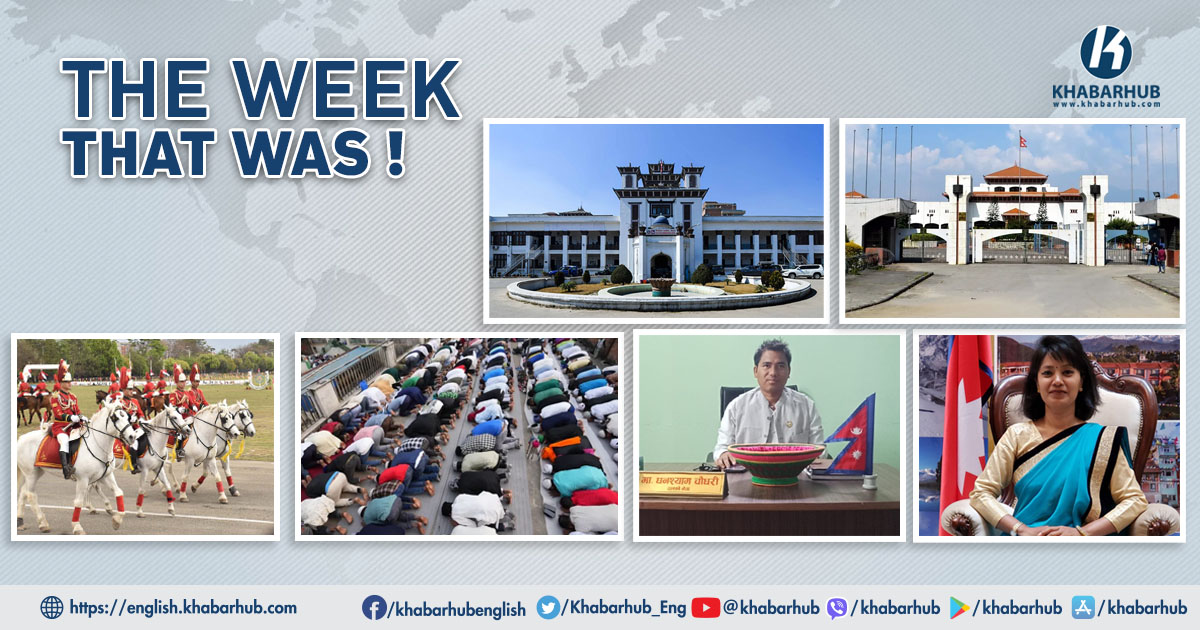KATHMANDU: Last week saw a flurry of significant events in Nepal, ranging from political developments to cultural celebrations and economic fluctuations.
One of the foremost occurrences was the enforcement of the election code of conduct by the Election Commission (EC) for the upcoming parliamentary by-elections in Ilam constituency-2 and Provincial Assembly 1(A) in Bajhang.
With the objective of ensuring transparency, impartiality, and security in the electoral process, the EC’s strict implementation of the code aimed to regulate the conduct of political parties, candidates, and all stakeholders involved.
Violations of the code were met with legal consequences, underlining the gravity of adherence to electoral regulations.
Amidst the electoral preparations, the allocation of election symbols to candidates participating in the by-elections added another layer of significance.
With a total of 20 candidates in Ilam and candidates from 12 political parties in Bajhang, the allocation process underscored the diverse political landscape and the multitude of voices vying for representation.
Overall, last week’s events in Nepal underscored the multifaceted nature of its socio-political, cultural, and economic landscape, reflecting a country in constant flux and adaptation.
In a surprising turn of events, the Maoist Center announced its withdrawal of support from the Koshi provincial government, signaling significant political shifts within the provincial governance structure.
This decision, coupled with indications of the CPN-UML also poised to retract its support, hinted at potential changes in governance dynamics and composition.
On the legislative front, Bimala Ghimire’s election as Deputy Chairperson of the National Assembly highlighted the intricate parliamentary dynamics and the cross-party support she garnered.
Similarly, Chief Minister Jokh Bahadur Mahara’s successful vote of confidence in Lumbini Province underscored his leadership position amidst diverse political affiliations.
Meanwhile, institutional changes unfolded with the government’s recommendation of Dr. Anjan Shakya for the position of National Assembly member and the Nepali Army’s appointment of Brigadier General Gaurav Kumar KC as its new spokesperson, indicating ongoing evolution within governmental and military structures.
However, internal party conflicts emerged as Ranjita Shrestha suspended MP Ghanashyam Chaudhary from the Nagarik Unmukti Party, shedding light on the internal tensions within political organizations.
Beyond the political realm, cultural festivities like Ghode Jatra in the Kathmandu Valley provided moments of communal celebration and tradition, while environmental concerns persisted with escalating air pollution levels prompting urgent calls for action to contain wildfires and address contributing factors.
Moreover, the conclusion of Ramadan with the observance of Eid-ul-Fitr by the Muslim community and the government’s formation of a recommendation committee to appoint officers for transitional justice commissions highlighted the diverse socio-cultural and governance landscape of Nepal.
Economically, the record-high gold prices further emphasized the volatility in the precious metals market, reflecting broader economic fluctuations and challenges facing the nation.
Overall, last week’s events in Nepal underscored the multifaceted nature of its socio-political, cultural, and economic landscape, reflecting a country in constant flux and adaptation.









Comment